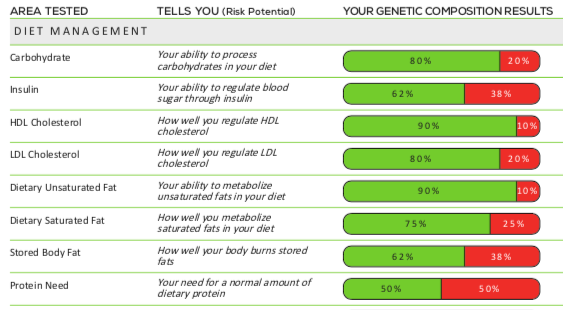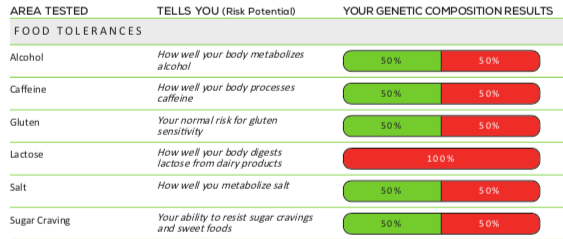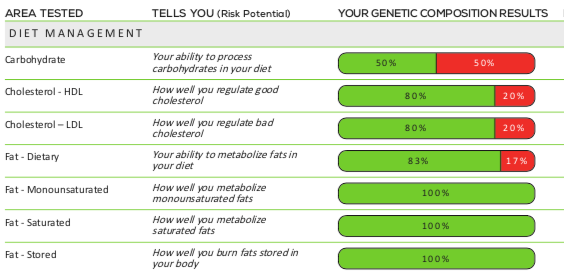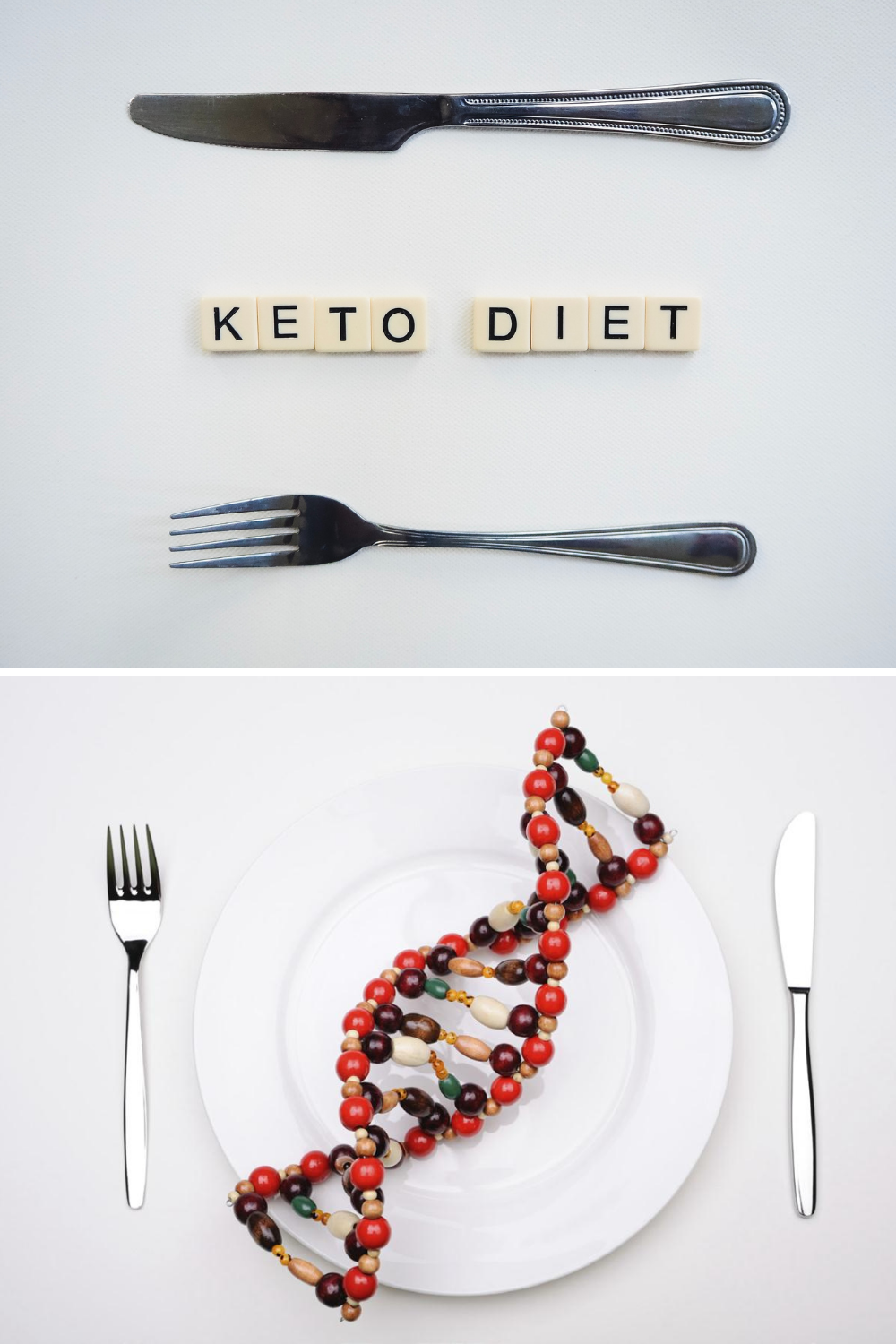In the past several years, social media and online health “gurus” like David Asprey have popularized the high-fat, low-carb ketogenic (or keto) diet as an effective way to lose weight and improve metabolic health markers.
The keto diet involves eating a very low-carb, high-fat diet to trigger the body to go into a state of ketosis. When this happens, the body becomes incredibly efficient at burning fat for fuel instead of glucose derived from carbohydrates.
Many of those who have tried the ketogenic diet report initial weight loss success in the first several months. However, eating a low-carb, high-fat diet can be challenging to maintain as a long-term solution to healthy weight maintenance. What’s more, some people report negative side effects from staying on a keto diet long term, including mood fluctuations, accumulating extra fat in the liver, and symptoms of micronutrient deficiencies.
There are many health interventions, such as the keto diet, that promise weight loss results. Sadly, dieters often regain the weight they have lost or gain even more weight than they initially lost, resulting in a lack of motivation to achieve their desired weight and health goals moving forward.
From our experience, the most sustainable approach to weight loss and weight management is by making small tweaks in your eating and lifestyle habits with personalized health recommendations. A “one-size-fits-all” approach to nutrition is generally not effective at keeping weight off long-term. Two recent studies published by BMC Nutrition and BMJ Nutrition proved precisely that.
Comparing Weight Loss Results Between A Keto Diet Vs. DNA Diet
The study conducted by BMC Nutrition compared the ketogenic diet to a DNA diet for weight loss. Participants were placed on either a ketogenic diet or a low glycemic DNA diet using genetic data from 28 SNPs. They were monitored in three intervals: 24 weeks, 18 months and 24 months.
Which group lost more weight?
After 24 weeks, the keto group lost more weight. However, at 18-months, the DNA diet group lost significantly more weight than those in the keto group who had regained some weight. Additionally, the DNA diet group reported better results for total cholesterol, HDL and fasting glucose levels.
At 24-months, 45% of the keto group subjects diverged from their nutrition plan due to family events, social gatherings, holidays, and a lack of motivation. Many of the ketogenetic group subjects had regained weight, while subjects in the nutrigenetic group continued to lose weight.
DNA Diet Outperforms Keto Diet For Weight Loss
This study tells us that long-term weight loss maintenance requires permanent lifestyle changes in exercise and eating habits. These changes need to be significant but not necessarily radical or unachievable.
Although a keto diet offers the allure of rapid weight loss, compliance and adherence to a restrictive diet are usually low in the long-run.
As demonstrated in this study, a DNA diet promotes greater adherence, consistency, and sustainable weight loss. A DNA-based diet offers personalized nutrition solutions that are not complicated, merely requiring slight differences between diet types that result in remarkable changes over time.
A DNA Diet Case Study
To further illustrate the weight loss successes we have witnessed from customers who made small adjustments to their diet and lifestyle based on their DNA, let us share Sarah and Erica’s story.
Meet Sarah
Sarah is a 31-year old female who has struggled with yo-yo dieting and the effects of cyclical weight gain and weight loss at a young age. She has a small to medium build and has tried every diet under the sun to lose weight and stay fit – from fat-fueled keto diets to protein-packed paleo diets to plant-based vegan diets. Finding a diet that supports healthy weight maintenance has been difficult for Sarah. In her mid 20’s, Sarah experienced a period of unexplained weight gain, which was related to hormonal imbalances. She’s frustrated with not knowing what diet works best for her and is seeking guidance on how to eat and live to maintain a healthy weight while supporting her hormones proactively.
Sarah’s genes related to diet and nutrition (from the dietPower DNA Test Kit)
- High genetic variations in Protein – associated with a consistent intake of dietary protein from nuts and seeds to stay satiated and full.
- Low genetic variations in Carbohydrates – associated with an excellent ability to process carbohydrate foods like whole fruits, vegetables, grains, lentils and legumes.
- Moderate genetic variations in Insulin – associated with a moderate ability to regulate blood sugar, which means she has to avoid high glycemic foods like sodas, fruit juices, and foods with refined white sugar.
- Low genetic variations in Fats – associated with an excellent ability to metabolize saturated and unsaturated fats from cold-pressed oils, fatty fishes, avocado, nuts and seeds.

- High genetic variations in Food Tolerances – associated with a poor tolerance to alcohol, caffeine, gluten, lactose, salt and sugar cravings.

- High genetic variations in Vitamin B12 – which can lead to issues processing key vitamins needed for macronutrient metabolism, energy and keeping cells fed and healthy.
![]()
Sarah’s genes related to fitness (from the fitPower DNA Test Kit)
- Low genetic variations in Endurance – making this type of activity such as cycling, swimming, jogging, and yoga more favourable for Sarah.
- High genetic variations in Power Sprint – making activities like weight-lifting, circuit training and interval training less effective for Sarah.

Sarah’s genes related to hormone health (from the healthPower DNA Test Kit)
- High genetic variations in Biosynthesis of Androgens and Estrogens – making Sarah more susceptible to an increased risk of hormone imbalance.
- High genetic variations in the Elimination of Estrogen Metabolites – putting Sarah at a higher risk of exposure to biologically active and toxic estrogen metabolites.

Changes Sarah made to her diet and fitness plan:
- She became more diligent in eating a consistent amount of protein with raw nuts and seeds throughout the day, keeping her full and satiated.
- She introduced more healthy carbohydrates into her diet with whole grains, legumes, and resistant starches. Making sure to choose lower glycemic options, helping to keep her hormones balanced and her mood healthy.
- She has always known that her body was more sensitive to dairy, caffeine, gluten, and alcohol compared to others. Her genetic results confirmed her suspicions and have convinced her to avoid those foods for good – resulting in improved digestion, sleep, reduced gas, bloating and water retention.
- She increased the frequency of slower, low-impact activities like yoga and stretching and reduced the frequency of weight-lifting sessions per week. As a result, her body composition has improved dramatically within three months.
- Knowing that she is prone to imbalanced hormones, she now works with a naturopath to monitor her sex hormones once a year.
Results for Sarah from eating a DNA-based diet:
Sarah has never felt better about her physical and mental wellness without the stress caused by her yo-yo dieting habits. With the confidence of knowing exactly how she should be eating and exercising for her body, she can now focus on making individualized yet straightforward guidelines to maintain a healthy weight and balanced hormones.
Meet Erica
Erica is a 53-year-old female who is overweight and has Type 2 Diabetes. She has struggled to lose and keep weight off all her life. Erica has had many failed attempts with traditional calorie-based diet programs, gym memberships and national weight-loss chains. She achieved temporary weight loss only to gain even more weight back eventually. Erica has knee problems that affect her ability to exercise and is always tired. She feels worried and discouraged at the increasing weight and health challenges she is facing.
Erica’s genes related to diet and nutrition (from the dietPower DNA Test Kit)
- High genetic variations in Carbohydrates – associated with increased sensitivity to dietary carbohydrates, an increased tendency to gain weight and lower success with weight-loss regimens.
- Low genetic variations in Fats – associated with an excellent ability to metabolize fats in the diet.

- High genetic variations in Lactose – associated with a poor ability to digest Lactose.
![]()
- High genetic variations in Vitamin B6 and B12 – which can lead to issues processing key vitamins needed for macronutrient metabolism, energy and keeping cells fed and healthy.

Erica’s genes related to fitness (from the fitPower DNA Test Kit)
- High genetic variations in Endurance – making this type of activity (such as long sessions of cardio) less effective for Erica
- Low genetic variations in Power Sprint – making weights and strengthening activities a good fit for her body

Changes Erica made to her diet and fitness plan:
Erica was raised in an era where she was taught fats were terrible and had focused on eating low-fat foods much of her life to manage her weight. Erica realized she had avoided foods that her body was genetically well designed for.
- She incorporated healthy fats in her diet, such as nuts, fish, seeds, olive oil, avocados and omega 3s.
- She ate carbohydrates with a lower glycemic load, such as beans, lentils, nuts, vegetables, fruits and whole grains from the pasta and breads she adored.
- She ate smaller, more consistent meals throughout the day to supply her body with consistent energy that her body could efficiently use and burn off.
- She cut out all dairy – which was difficult – having been raised in a farming community and immediately started to feel less bloated. She was surprised to realize that the pain she had experienced in her knees for years was disappearing within two weeks.
- She started taking a complex B vitamin (methylated) and found her energy to improve. With her knees improving, she started walking and added strengthening activities – a good fit for her fitness genes – to better metabolize carbohydrates and manage her diabetes.
Results for Erica from eating a DNA-based diet:
Within a few weeks of eating the right foods and starting an exercise program based on her DNA profile, Erica’s weight began to fall off. An initial weight loss of 40 pounds plus four dress sizes in 3 months.
Key Takeaways
A healthy and sustainable weight loss diet needs to be uncomplicated and easy to follow. When specific diets, like the keto diet, deviate significantly from your regular diet and lifestyle habits, compliance, and adherence become low.
Personalized diet and fitness recommendations offer health solutions that require merely a slight change in how you’re eating and exercising. One of the main benefits of a DNA-based diet is behavioural change, a useful tool in promoting long-term lifestyle changes that yield sustained weight loss and health improvements.
Wondering what changes you can make to reach your wellness goals? Learn more here!

